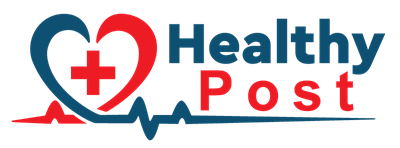Hypertension, also known as high blood pressure, is a common cardiovascular disease with an increasing incidence worldwide. Patients with hypertension have increased internal pressure on their blood vessels., which increases the burden on the heart and eventually leads to damage to important organs such as the heart, brain, and kidneys. Not only that, hypertension is also one of the main risk factors for serious complications such as heart disease, stroke, and kidney disease. However, the occurrence of hypertension is often accompanied by no obvious symptoms, so it is known as the “silent killer.”
Hypertension not only affects the patient’s quality of life, but also imposes a huge burden on the social economy. In order to meet this global challenge, this article aims to popularize the basic knowledge of hypertension, explore the prevention methods of hypertension, and how to protect cardiovascular health, in order to improve the public’s understanding and prevention awareness of hypertension.
Definition and Hazards of Hypertension
Definition of Hypertension
Hypertension, also known as hypertension or hypertension, is a chronic disease that is usually manifested by persistently higher blood pressure than normal. Blood pressure refers to the pressure of blood in the arteries, usually expressed in millimeters of mercury (mmHg), and is divided into systolic blood pressure (Systolic Blood Pressure) and diastolic blood pressure (Diastolic Blood Pressure). The normal blood pressure range is usually defined as systolic blood pressure below 120 mmHg and diastolic blood pressure below 80 mmHg. The diagnostic criteria for hypertension are systolic blood pressure greater than or equal to 140 mmHg and diastolic blood pressure greater than or equal to 90 mmHg.
The Dangers of High Blood Pressure
High blood pressure is a “silent” killer because it usually has no obvious symptoms, but it causes serious damage to various systems of the body. The following are the main hazards that high blood pressure may cause:
a. Heart disease: Hypertension increases the burden on the heart, which can lead to myocardial hypertrophy and decreased heart function. This may eventually lead to serious heart diseases such as coronary heart disease, angina pectoris, and myocardial infarction.
b. Stroke: Hypertension is one of the main risk factors for stroke. Continuous high blood pressure can damage cerebral blood vessels and increase the risk of stroke.
c. Kidney disease: High blood pressure may damage the small blood vessels in the kidneys, leading to decreased kidney function or even kidney failure.
d. Retinopathy: Hypertension can cause damage to blood vessels in the eyes, leading to retinopathy, which may eventually lead to blindness.
e. Arterial disease: High blood pressure can lead to arteriosclerosis and increase the risk of cardiovascular disease.
f. Heart failure: Long-term high blood pressure will increase the burden on the heart and may eventually lead to heart failure.
These hazards underscore the importance of hypertension prevention. Fortunately, some simple lifestyle and drug interventions can effectively prevent and control hypertension.
Risk Factors for Hypertension
High blood pressure is the result of a combination of factors, including genetics, lifestyle, and environmental factors. The following are some of the main risk factors for high blood pressure:
- Genetic factors: If your parents or close relatives have high blood pressure, your risk of developing high blood pressure will increase. Genetic factors can affect the structure and function of blood vessels, making them more susceptible to damage.
- Unhealthy eating habits: A high-salt diet, a high-fat diet, and a diet lacking in vegetables and fruits can lead to weight gain and elevated cholesterol, thereby increasing the risk of high blood pressure.
- Lack of physical exercise: Long-term lack of physical exercise will not only lead to weight gain, but also make the heart muscle weaker, making it difficult to cope with the burden of high blood pressure.
- Obesity: Overweight and obesity are independent risk factors for high blood pressure. Excess weight increases the workload of the heart and increases the risk of high blood pressure.
- High salt intake: Excessive salt (sodium) in food will cause fluid retention in the body, increase the burden on the heart, and directly affect the blood pressure regulation mechanism.
- High alcohol consumption: Excessive drinking can increase blood pressure, damage the vascular endothelium, and increase the risk of hypertension.
- Common medications: Certain medications, such as nonsteroidal anti-inflammatory drugs, hormone replacement therapy, etc., may also cause high blood pressure.
- Advanced age: As we age, our blood vessels gradually become stiffer, which can easily increase our blood pressure.
Prevention of Hypertension
Although there is a certain genetic risk for high blood pressure, most cases of high blood pressure can be avoided by changing your lifestyle and taking appropriate preventive measures. Here are some ways to prevent high blood pressure:
- Healthy diet: Adopting healthy eating habits is the best way to prevent high blood pressure. It is recommended to reduce salt intake, limit high-fat and high-cholesterol foods, and increase the intake of vegetables, fruits, whole grains, and foods rich in healthy fats such as nuts and fish.
- Control your weight: Maintaining a proper weight is essential to reducing the risk of high blood pressure. If you are overweight or obese, losing weight through moderate exercise and a proper diet can effectively prevent high blood pressure.
- Exercise: Doing at least 150 minutes of moderate-intensity aerobic exercise per week, such as brisk walking, swimming, or cycling, can help maintain cardiovascular health and reduce the risk of high blood pressure.
- Quit smoking and limit alcohol consumption: Both smoking and excessive drinking are closely related to the occurrence of high blood pressure. Quitting smoking and limiting alcohol consumption can significantly reduce the risk of high blood pressure.
- Control stress: Long-term mental stress may lead to high blood pressure. Learn to deal with stress effectively, such as relaxing your body and mind through meditation, yoga, or deep breathing exercises.
- Regular physical examinations: Measure blood pressure regularly, detect hypertension early, and take necessary treatment and lifestyle intervention measures.
- Avoid blind medication: If you already have high blood pressure or other chronic diseases, be sure to take medication as recommended by your doctor and do not change or stop taking medication your own.
Conclusion
Hypertension is a common cardiovascular disease, but it is preventable and controllable. Through a healthy lifestyle, a proper diet, moderate exercise, giving up smoking, and alcohol restriction, we can reduce the risk of hypertension and protect cardiovascular health. At the same time, regular physical examinations and doctor’s advice are also the key to staying healthy. Each of us should attach importance to the prevention of hypertension, take responsibility for our own cardiovascular health and quality of life, and work together to reduce the threat of this “silent killer”. Consult with healthcare professionals for personalized advice on managing hypertension and ensure a proactive approach to maintaining a healthy heart.


